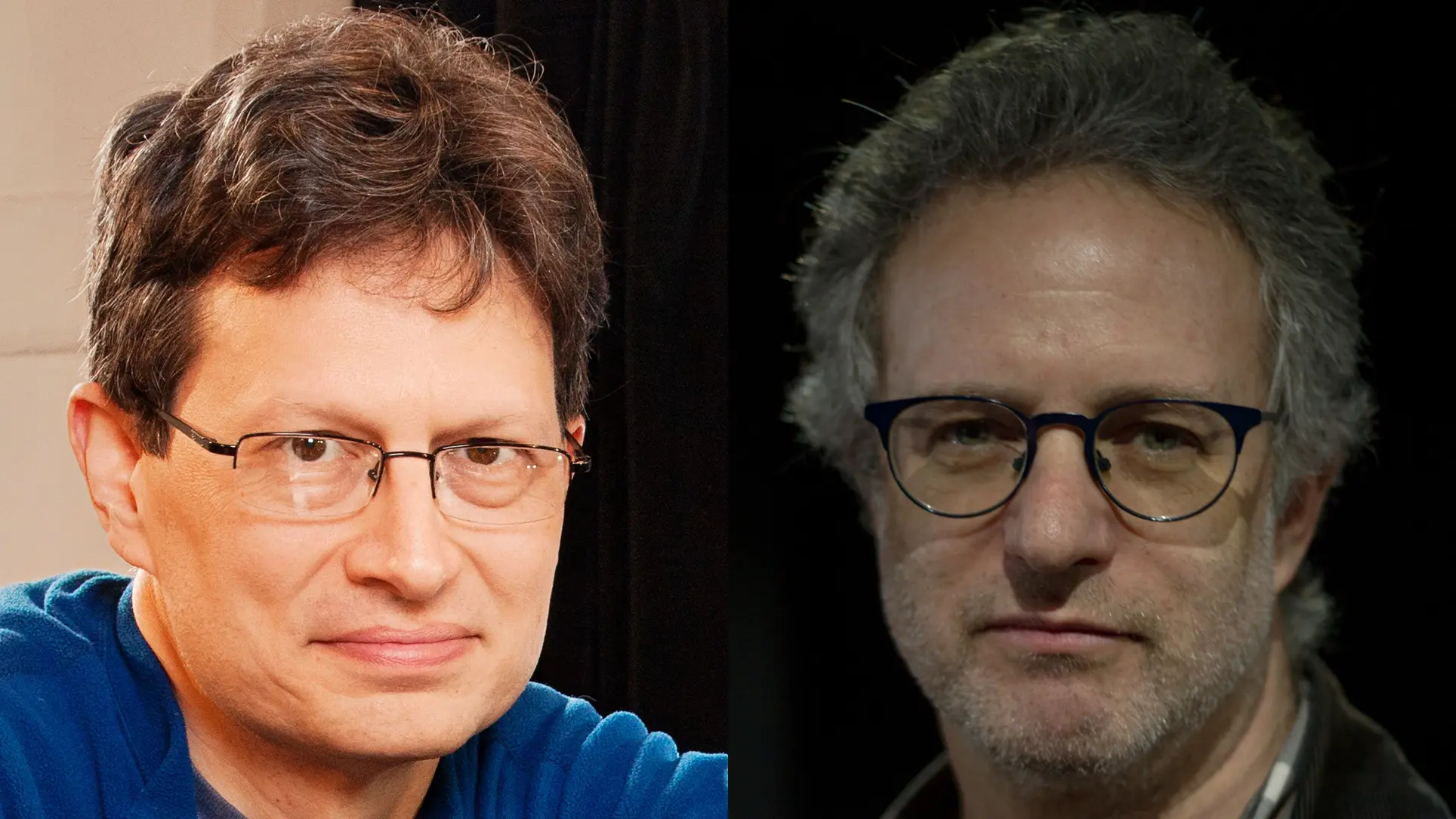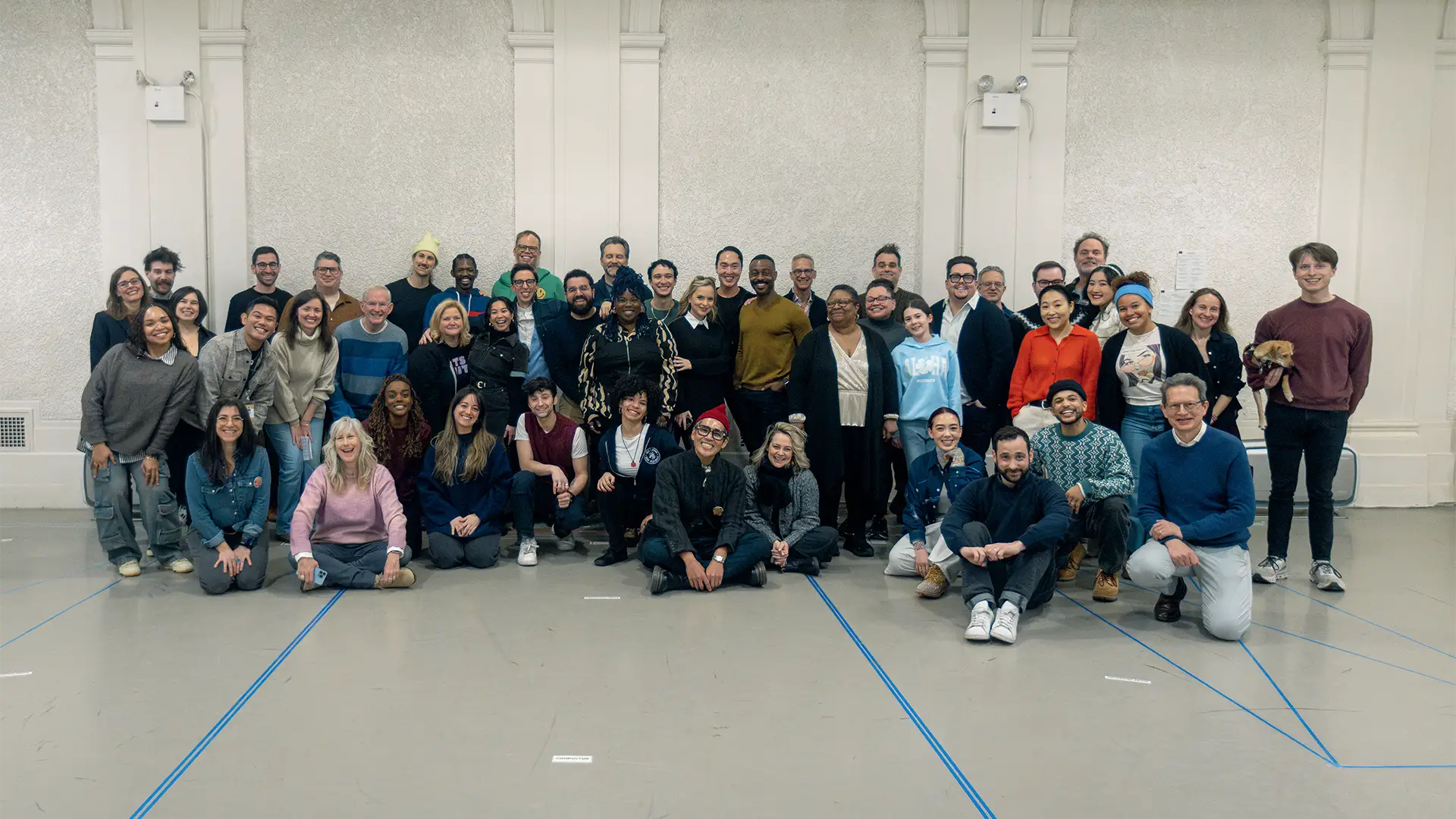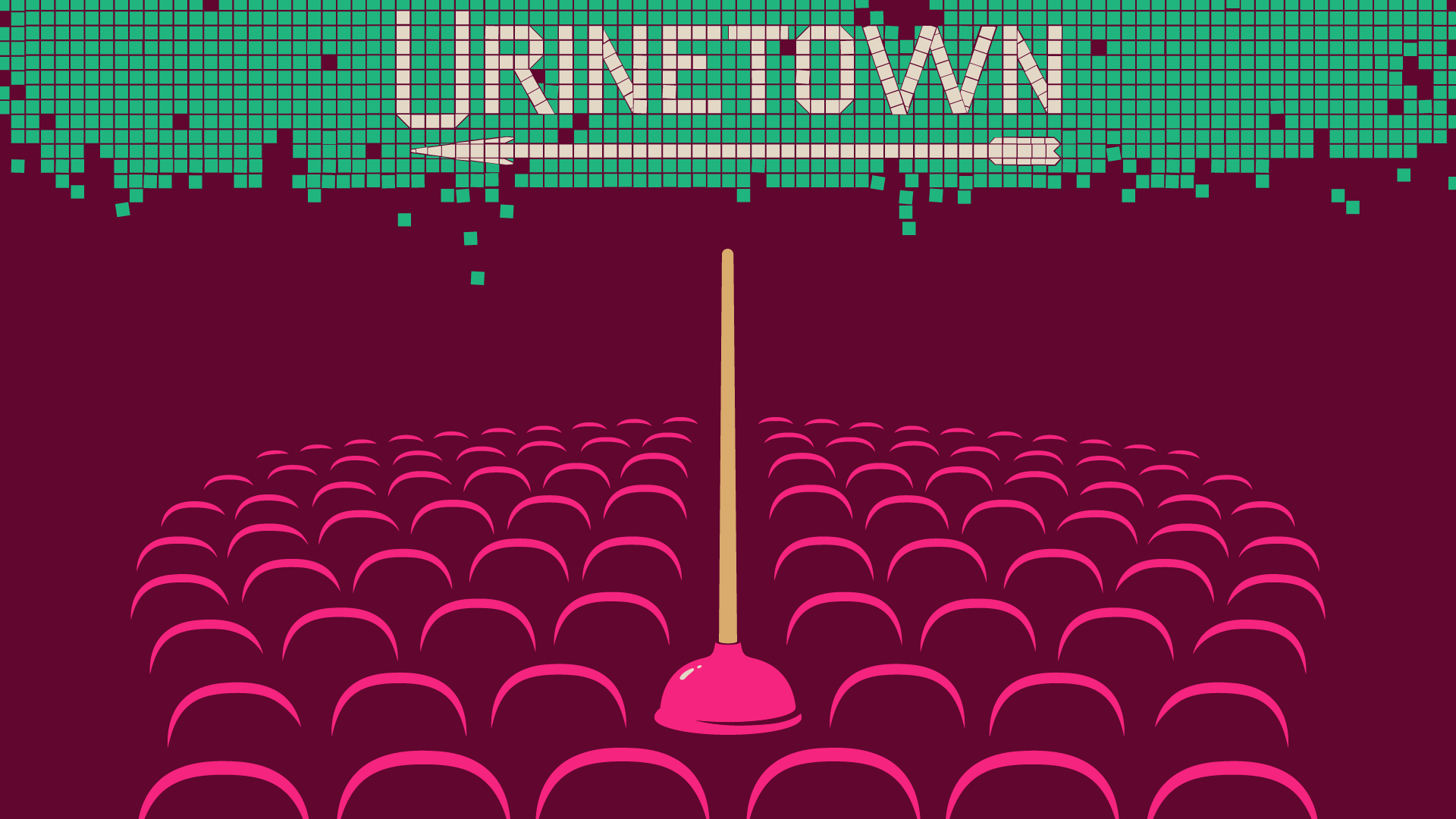Today, climate change looms over our society as one of the most imminent health threats to humanity. The frightful likelihood that we are closer to living in a Urinetown reality is ever present in my conversation with the brilliant Tony Award-winning writing duo, Mark Hollmann (left, Music & Lyrics) and Greg Kotis (right, Book & Lyrics), about the New York City Center Encores! revival.
What if Greg Kotis and Mark Hollmann’s Parable is a Prophecy?
by Nina Slowinski
This conversation has been edited and condensed.

“I’m very curious to see how the show lands 24 years later. What we see in Urinetown is what people are going to bring to it, both on stage and off stage,” Kotis considers the time that’s passed since the 2001 original Broadway production. And Urinetown’s inception goes back even further to a Parisian square near the Luxembourg Gardens, the same gardens Ernest Hemmingway frequented to shoot pigeons for food, when, “a lot of the details came into focus in sort of a flash. Not to get too ethereal about it, but I had sort of an image of a little girl, kind of a mid-19th century, orphan girl begging on the street, with the line ‘Penny for a pee, sir?’ So, it was sort of one of these daydreamy kind of thoughts. A lot of the writing process, the imagining process, was trying to answer the questions: ‘Who is this girl? Why is she saying this? What is the world in which someone would actually say this?’ That same year, I moved to New York City and one of my first jobs was working as a location scout for a TV show. That gave me access to the very highs and lows of the City, what seemed like the ecological disaster of a megapolis. All these things were on my mind in imagining the beginning of this show.”
“It seemed sort of this grand idea, and a musical seemed the form that could be big, and epic, and ridiculous in the way that I was thinking,” Kotis says in regard to beginning to envision the world, before pitching his grand idea to Hollmann.
Hollmann reflects on his working history with Kotis, having collaborated previously in Chicago with their ensemble improvisation-based theater company, Cardiff Giant, “It seemed like a continuation of the dark, dystopian comedies that we had worked on together.” Created with their Cardiff Giant aesthetic in mind (and, yes, this is true), Urinetown has neither bad words nor any topical references. “These were two restrictions that Cardiff Giant had, so we applied those restrictions and boundaries to this work too.”
Kotis elaborates, “There are limits, because it is a parable—it is a self-contained world that is parallel to our own.”
“The challenge of writing a parable is to find a way to make it funny and accessible quickly to audiences, but the benefit is that it stays relevant longer, since these are evergreen dynamics that we contend with as human beings. Unfortunately, some of the themes and ideas are still relevant, maybe more relevant,” Hollman adds.
 The cast of Urinetown
The cast of Urinetown
The parable of Urinetown warns us of a reality that fails to implement, maintain, and share the responsibility of sustainable living practices. Prior to this interview, I hadn’t thought of Urinetown as a parable at all. I had thought of it as a satire, yes. A musical parody, yes. Hollmann’s respect and understanding of the musical theater form is deep, “I was writing music that was relying a lot on the models from the Golden Age of musical theater. In rehearsals for the 2001 Broadway production, the director and choreographer started picking up on that and started amplifying it, even amplifying where I didn’t think it was there. For example, part of the act one finale was staged in a tableau of people breaking out with revolutionary flags, very much like Les Misérables.”
Hollmann goes on, “That’s where the indictment of the musical comes in: beyond parody, we’re saying, ‘Nothing can be solved in a song, nothing can be solved in a musical either.’”
How much easier our world might be if every moral quandary could be solved with a matched tune and lyrical platitude, and just as Kotis points out, “Musicals offer romance. Urinetown is very suspicious of the romance in theater and the romance in politics, the romance in our social order. There’s something hopeful about dispensing easy answers or remedies that can be reduced down to a motto, like ‘Follow Your Heart’ or ‘Look At the Sky’ —but those aren’t going to help us. What is going to help us is looking squarely at our condition, our situation, and to try to be honest with ourselves, I think.”
Honestly, I think so too.
Nina Slowinski (she/they) is an alphabet soup playwright/writer, creative arts administrator, sometimes director/producer, and everyday daydreamer.
Encores! Urinetown
Feb 5 – 16, 2025
Love Life, the only collaboration between Kurt Weill and Alan Jay Lerner, depicts a love story that takes place over 200 years of American history, through the eyes of a family who never ages. This rarely staged production directed by Tony winner Victoria Clark (Kimberly Akimbo) and featuring Kate Baldwin (Hello, Dolly!) and Nicholas Christopher (Encores! Jelly's Last Jam) is considered by some to be the first concept musical, an inspiration for musical theater favorites such as Cabaret, Chicago, and Company.
